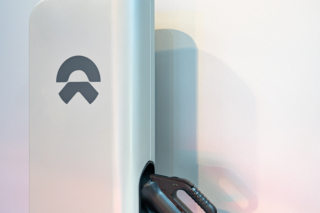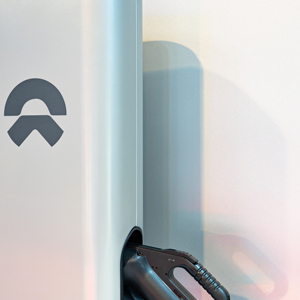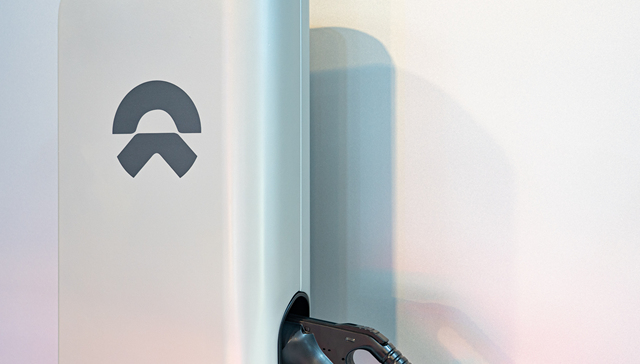by ZHOU Shuqi
Chinese maker Nio has reached an agreement with Changan Automobile on collaboration in the battery-swap business.
The EV maker announced a cooperation agreement with the State-owned car manufacturer focused on establishing battery-swap standards for the entire industry. The two will build a swap network and conduct research together. Nio already has 2,100 battery-swapping stations, with plans for 2,300 by the end of this year.
Nio is in talks with other automakers for cooperation on the same matter.
SAIC, Geely and CATL are already deeply involved in battery-swapping stations and have gone their own ways in terms of development resulting in a scattered and disorderly industry urgently in need of refrom.

XIN Guobin of the Ministry of Industry and IT has previously said that investment is needed to standardize battery dimensions, interfaces, protocols and other standards.
When national standards are established, as they inevitably will be, more companies will join the battery-swap business, investments will converge, and universality will increase. At the national level, are an excellent infrastructure investment. Considering China’s current sway in the global EV market, a national standard may even evolve into an international standard.
During the Shanghai Auto Show this year, there were meetings between Daimler Group CEO Ola Källenius and Nio CEO LI Bin. Media reports of battery-swapping cooperation were quickly denied by both parties.
But there have been persistent doubts about Nio's battery-swapping model. The cost of battery-swapping stations is high, about 3 million yuan each. Investment this year alone amounts to 3 billion yuan, excluding additional expenses such as site leasing, personnel operation, and electricity costs.
According to calculations by Dongfang Securities, a station needs to perform around 90 swaps per day to break even. According to Shen, the break-even point for Nio's battery-swapping stations is 50 to 60. Currently, Nio's stations perform 35 swaps a day.
The Nio model faces compatibility issues with other manufacturers. WANG Chuanfu, Chairman of BYD, does not believe battery swaps will ever become mainstream in passenger vehicles.
But in Li's view, battery-swapping is comparable to cloud services widely invested in by internet and technology companies like Amazon. Both require a nationwide network, with large and lengthy investment cycles. Once established to serve external customers, the barrier for latecomers to enter will be very high.
Battery swapping has also become a way for Nio to adjust prices. This year, Nio made multiple adjustments to its battery-swapping benefits.
After reducing the number of free swaps from six to four free swaps were quickly excluded as standard vehicles. As a result, all Nio models were subsequently reduced by 30,000 yuan.
Speculation is that Nio's energy division will be spun off to serve more brands, with the possibility of independent operation. Nio's charging and swapping business is already the largest in the world.





